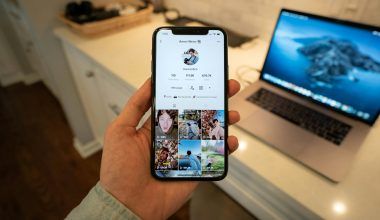Understanding Music Publishing
Have you ever wondered how do music publishers make money? The world of music publishing might sound complicated, but it’s actually very straightforward when you break it down. Music publishers are like the helpers behind the scenes. They work to make sure songwriters and composers get paid for their hard work.
Think of a song you love. That song has a copyright, which protects the rights of the person who wrote it. Music publishers manage these copyrights and help make money from them. They also protect the artist’s rights, so no one can use the song without permission.
In this blog, we’ll explain how music publishers earn money, what they do for artists, and why their role is so important in the music industry. Let’s dive in and learn in the simplest way possible.
What is Music Publishing?
Music publishing is about managing the ownership of songs. When a songwriter creates a song, they own the rights to it. These rights include things like who can play, copy, or use the song in a movie or advertisement.
Music publishers help songwriters by managing these rights. They make sure the song is protected, collect money (called royalties), and even find new ways to use the song so that it earns more.
How Do Music Publishers Make Money?
Music publishers have different ways of earning money. Let’s break it down step by step:
1. Performance Royalties
When a song is played in public, the songwriter and publisher earn something called performance royalties. This can happen when:
- A radio station plays the song.
- It’s performed live at a concert.
- It’s played in a café, mall, or gym.
Organizations like ASCAP, BMI, or PRS track these performances and collect royalties. Publishers work with these organizations to make sure artists are paid.
2. Mechanical Royalties
Mechanical royalties are earned every time a song is reproduced. This includes:
- Physical copies like CDs or vinyl records.
- Digital downloads from iTunes or Amazon.
- Streams on platforms like Spotify or Apple Music.
Mechanical royalties are collected whenever someone buys or streams the song.
3. Sync Licensing Fees
Sync licensing happens when a song is used in a video. For example:
- A TV show might use your song in the background.
- An ad for a car company might feature your music.
- A video game might include your track.
The publisher negotiates a fee for these uses, and the money is shared between the publisher and the songwriter.
4. Print Royalties
Print royalties come from selling sheet music. Though not as popular now, this method is still common for classical and educational music.
5. Digital Royalties
Digital royalties are earned when a song is streamed online. Platforms like Spotify, YouTube, and Apple Music generate money for every play. Publishers track these streams and collect royalties for the songwriter.
6. Grand Rights Licensing
When a song is used in a musical or opera, publishers earn grand rights royalties. This is a smaller market but can bring in a lot of money for certain types of music.
What Do Music Publishers Do?
Music publishers play an important role in helping songwriters and composers. Here’s what they do:
1. Protect Copyrights
The first job of a publisher is to register the song with copyright organizations. This ensures that no one else can claim ownership of the song or use it without permission.
2. Collect Royalties
Publishers keep track of where a song is played, streamed, or used. They make sure the songwriter is paid for every use.
3. License Songs
Whenever someone wants to use a song, the publisher handles the licensing process. This includes negotiating fees and making sure the songwriter gets a fair deal.
4. Promote Music
Publishers pitch songs to producers, advertisers, and media outlets to get more exposure for the music. This can lead to more earnings for the songwriter.
5. Support Artists
Some publishers help songwriters improve their work, connect with collaborators, or even secure record deals. They act as mentors and partners for artists.
Why Are Music Publishers Important?
Without music publishers, songwriters would find it difficult to earn money or protect their rights. Here are some of the main reasons why publishers are important:
- Earnings: Publishers make sure artists get paid for their work.
- Exposure: They promote songs and find new opportunities for them to be used.
- Protection: Publishers safeguard the rights of the song so no one can steal or misuse it.
How Do Artists Benefit from Music Publishers?
For songwriters and composers, working with a music publisher has many benefits:
- Time-Saving: Artists don’t have to worry about tracking royalties or handling legal issues.
- Income Security: Publishers ensure a steady flow of income through royalties.
- Networking Opportunities: Publishers connect artists with other creators and industry professionals.
- Increased Visibility: With a publisher’s help, a song can reach wider audiences.
Real-Life Examples of Music Publishing Success
1. The Power of Sync Licensing
An indie songwriter had their track featured in a popular Netflix series. The exposure brought them a big paycheck and new fans.
2. Streaming Success
A viral hit on TikTok led to millions of streams for a songwriter. Thanks to their publisher, they were able to collect royalties and secure more opportunities.
3. Commercial Deals
A band’s song was chosen for a major car commercial. Their publisher negotiated a lucrative deal, boosting the band’s income and fame.
Trends in Music Publishing
The music industry is always evolving. Here are some recent trends:
- Focus on Streaming: Digital platforms are becoming the biggest source of income for publishers.
- Independent Artists: More musicians are choosing to self-publish to keep control of their earnings.
- Technology Tools: AI and data tracking are helping publishers collect royalties more efficiently.
How to Choose a Music Publisher
If you’re an artist looking for a publisher, here’s what to consider:
- Reputation: Choose a publisher with a good track record.
- Transparency: Make sure they offer clear contracts and regular updates.
- Services Offered: Look for publishers who handle licensing, royalties, and promotion.
Conclusion: How Do Music Publishers Make Money?
Music publishers make money by managing copyrights and ensuring that songs are used legally and fairly. They earn through performance royalties, sync licensing, and many other methods. For artists, working with a publisher can mean more income, better opportunities, and less stress.
Understanding how do music publishers make money is the first step in appreciating their role in the music industry. Whether you’re a songwriter, producer, or just someone who loves music, knowing about publishing can help you navigate this exciting world.
Related Articles:
For further reading, explore these related articles:
- How to Publish My Music: A Complete Guide for Aspiring Artists
- The Ultimate Guide to Types of Music Publishing Deals
- Understanding Music Publishing Job Roles: A Comprehensive Guide
For additional resources on music marketing and distribution, visit Deliver My Tune.






